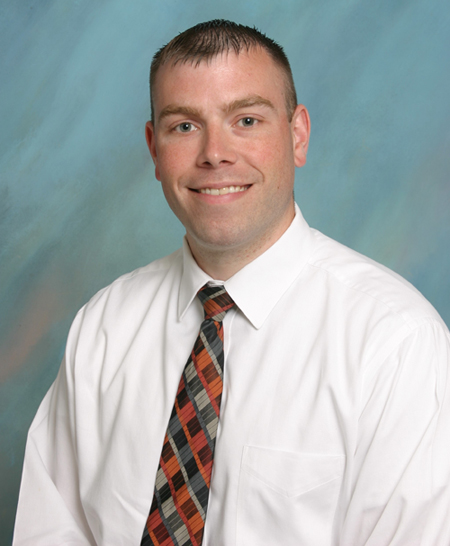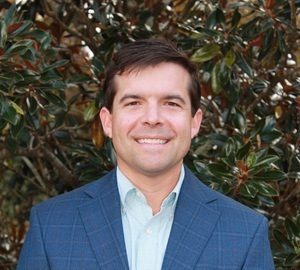From the Front Lines: Personal Auto

Mike Crowley
Vice President
Crowley Insurance Agency, Inc.
East Syracuse, New York
How did you get started at your agency?
I’m the third generation in our family agency, and I started the typical day after college graduation. In college, I thought there was no way I was into sales, and it’s unbelievable how quickly that changed. I always tell people there’s two types of salespeople—the relationship builders, and then there’s the guy who can sell anything to anybody, who’s got no problem cold calling, knocking on doors all day long, getting rejected, talking their way through it. I was not that person, but I was the relationship builder. People buy from who they like, know, and trust, and I found that to be very rewarding.
Why personal auto?
You’re selling somebody something they have to have. There’s no ifs, and or buts. With life insurance, yeah, you should have it, but nobody’s making you. Personal auto, they’re making you have it. That made it easier for me to get into the sales role— OK, I’m selling a product to somebody who needs it, so how do I show I’m better than where they are now versus the rest of the competition?
Biggest personal auto changes over the years?
When I first started, you didn’t see the rate increases on a consistent basis like you do now. You have to be so much more attentive to your clients because of the demand in the marketplace. There are so many more options and so many more companies advertising, “We can save you money.” I don’t like to even talk money. I don’t sell on price—I sell on the value of the coverage and then hope the price follows suit. If I don’t lead that way, maybe I can educate the client enough to the point where they’re not thinking price is the only thing that matters.
How do you de-emphasize price in the personal auto sale?
I do it right from the point of sale all the way through the process. I try to create an experience where they walk out of here and say, “Wow, they just made that super easy—everything’s explained and these people are great.” They’re buying a product they have to have, so I need to keep separating myself from the direct writers, the tech companies, and even the other independent agents. What can I do to show our value right from the start, and then continue it? You can’t just write it, show valu,e and then never touch it again, because consumers nowadays easily forget what you did for them in the past.
So when we do our proposals, we don’t do an apples-to-apples comparison of what you have with GEICO. That terminology of “equal comparison,” I don’t even do that. I do a proposal based on what I think they should have right off the bat, because 99% of consumers don’t understand insurance, so they’re looking to us as their adviser in this. “What do I need, how do I get it, how much coverage should I have?” It’s our job to dig where the competition is not digging. We find out what they need upfront, and we build the proposal form based on what they should have, and then I explain it to them so they can understand it: “This is why I think you should have this coverage, you have bad low limits on this coverage, I suggest this coverage.” I actually walk them through on a video proposal so that if they can’t meet with me face to face, they’re at least seeing me on a screen explaining it to them.
What I like the best is when I break somebody’s policy down and I go through the whole explanation, and then at the end I say, ‘Oh by the way, I saved you $800.” And that’s with all the extra coverage. I’m not giving them the lower coverage and saving them $1,000. I don’t give them that option, because if I give them that option, they might take it. And I don’t want them to take it, because then I’m not doing my job—actually educating them.
Advice for a fellow personal auto agent?
I’ve talked to other agency owners about doing the video proposals, and the first question out of their mouths is always, “How’s your close ratio? Has it improved since you started doing it this way?” And I say, “No.” My close ratio is about 90% and it’s stayed about 90% because we don’t spin our tires on the garbage stuff. Everything is referral-based or relationship-built sales. The people that are quoting with us, they’re not just randomly calling every avenue in the phone book just to find a quote. They’re already looking for the value, and we’re just showing it to them.
And then the next question is, “Then why do you do it?” Because that person now has built the relationship with me based on my video, and they’ve also forwarded it to three family members and friends, and my referrals get jumped tenfold. I might not have gotten a referral from that person for three years, or until somebody complained to them. Now, they’re proactively being a salesperson out there for me, referring people just because they were in awe.
You’re wowing them in the beginning. You’re not waiting until there’s a problem or a situation to wow them, and that’s what independent agents haven’t been doing in the past. They wait and play defense, they wait until there’s a claim. But people expect us, especially independent agents, to come through during those times. If we just think that’s all the value we need to show is during those times, that person is not going to be a client for life. You can’t look at it on a one-year basis. You lose money on most personal lines accounts the first year, based on the amount of work you put in and what you make out of it. You’re not really making profit until that policy’s renewed. I don’t want a client for three years or four years—I want them for 40 years.
Favorite personal auto success story?
Anytime I do these proposals and they pick up on the fact that it’s not about price. There’s a huge percentage of people that don’t care—they don’t want to learn, they buy the minimum thing they can possibly buy. So when you can take somebody who had a little bit of that in them and get them to realize how much coverage makes a difference, that is the most gratifying for me.










